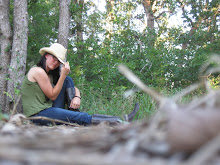So far, that makes sense, but a few pages later on, he says that prayer is only powerful when it is done correctly, with a knowledge of what God's will is. This means that if we are not in tune with God and his will, then the things we pray for will not be responded to in the way that we want. He used the generic example of great aunt Lucy's arthritis that you've been praying for for 20 years, and it still hasn't been healed as an example. Now, I get that if it is not God's will for her to be healed, then she won't be healed, but he does say that when we pray for healing, and trust that it is God's will for that person to be healed, then they will be (he used another example of a child named Julie that was really sick, and he simply trusted that it was God's will for her to be healed, laid hands on her, prayed for God to make her well, and the next morning she was.)
Now, the problem I have with it is this: while I agree that prayer is powerful, and God does change his mind when we pray according to his will, to say that someone will be healed, or not healed depending on how correctly you pray bothers me. It's different than saying you didn't have enough faith, and granted, the chapter was kind of confusing, but to say that it is always God's will for that person to be healed, or you can change God's mind so long as you ask him in the correct manner, seems off to me. It puts way too much of the responsibility on us.
Should we learn to pray the way Jesus did, with power and authority? Absolutely. Is prayer powerful? Without a doubt. But God still has the ability to say no to our petition, and Richard Forster's take it seems to take that option out of the equation.


No comments:
Post a Comment